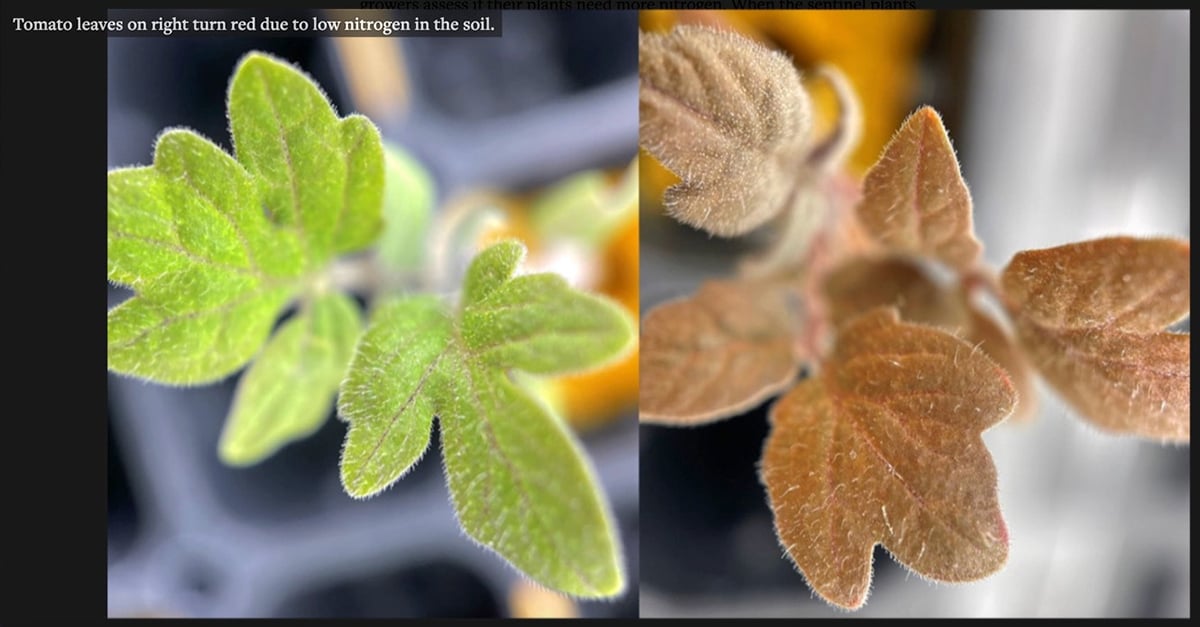Robert Stevenson has taken Monsanto to task for herbicide-tolerant canola that has begun cropping up on his farm.
The canola has appeared as a volunteer in his fields for at least three years. This year was the worst.
“In places it was thick enough to produce a crop,” said Stevenson, who practices zero tillage at his farm near Kenton, Man.
He said the uninvited crop is destroying marketing options for some of his crops and jeopardizing how he manages his farm.
A lot of the grass seed he produces is sold to Europe, which restricts imports of genetically modified canola seed.
Read Also

American researchers design a tomato plant that talks
Two students at Cornell University have devised a faster way to detect if garden plants and agricultural crops have a sufficient supply of nitrogen.
“The Europeans will not accept grass seed that has volunteer canola in it,” Stevenson said, during a gathering last week in Brandon organized by the Manitoba Zero Tillage Research Association to discuss Roundup Ready crops.
His thoughts struck at the heart of an issue between farmers and Monsanto, the maker of Roundup Ready canola. Who bears the responsibility when a herbicide-tolerant crop emerges in a field where it was never planted?
Is it the farmer who owns the field? A neighbour who grew a herbicide-tolerant crop in a nearby field? Or is it companies like Monsanto that are bringing those crops to Western Canada?
Stevenson believes the responsibility rests with Monsanto.
“I expect full compensation for what’s been happening to me now and in the future.”
In an interview, Monsanto spokesperson Trish Jordan said the company is discussing with Stevenson compensation and management of the herbicide-tolerant volunteers on his land.
While she did not want to discuss the amount of compensation, Jordan said some money has already been paid to Stevenson this year to help control the canola volunteers.
“He feels this will be a process where Monsanto will have to pay him for the rest of his farming career,” said Jordan.
“That is where we haven’t come to an agreement.”
Jordan said when Monsanto is called about unexpected herbicide-tolerant canola volunteers, the company will check to determine if the plants are Roundup Ready types and if so will discuss options for control with the producer.
She said the company had about 20 calls from growers dealing with that issue this year. Less than 2,000 acres were involved.
“Monsanto works with the farmer to address the situation to their satisfaction.”
Stevenson disagrees.
“That program is so unrealistic,” he said. “The way it works is on a field-by-field basis.
“Who has time to argue on every field, field after field, and that’s what they’re doing.”
Stevenson’s crops this year included meadow brome for grass seed. Besides spraying to control the volunteers, he said swathing was done in early September to prevent the volunteers from setting seed.
He considers Monsanto’s program for dealing with the issue less than farmer friendly.
“They come out and they question your management. Then they question your ability to keep your seed clean.
” It’s a very confrontational approach. Then they say they’d like to assist you.”














